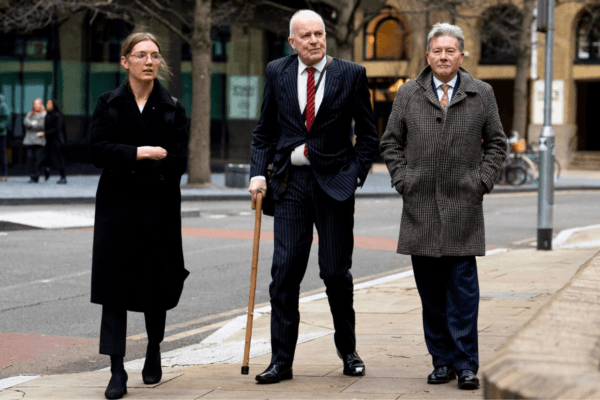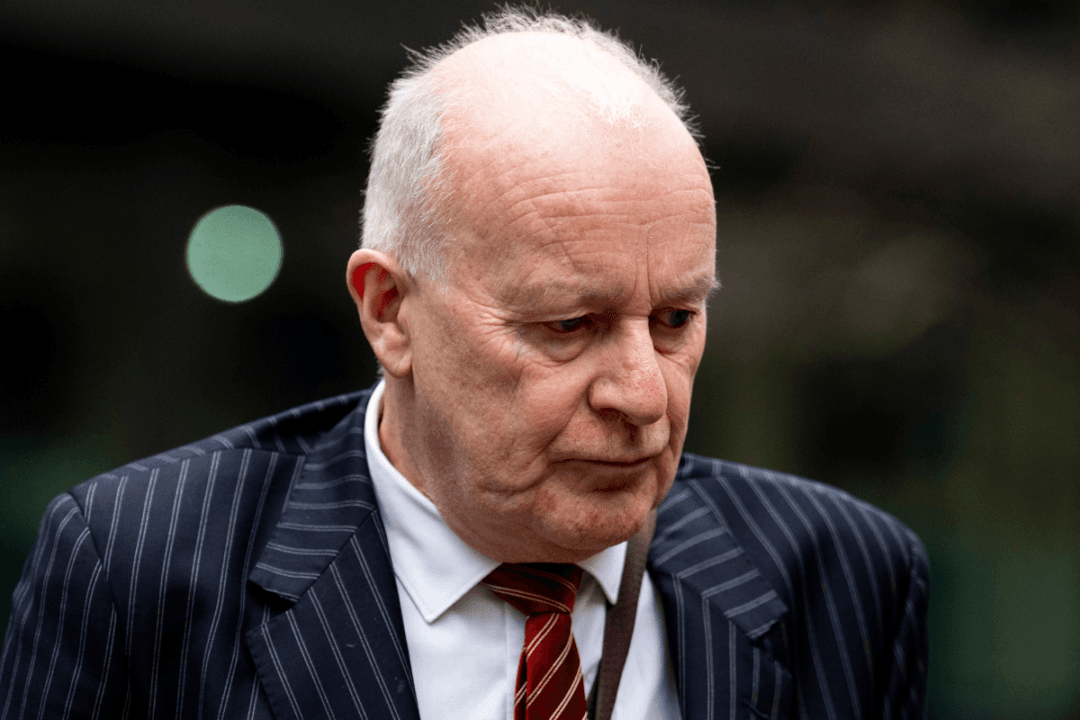Former human rights lawyer Phil Shiner has been handed a suspended sentence for fraud charges relating to false claims made by Iraqis against British soldiers.
The 67-year-old was given a two-year sentence suspended for two years at Southwark Crown Court on Tuesday, after admitting to three counts of fraud, including that an agent acting on his behalf had been cold-calling potential clients in Iraq.
In his sentencing comments, Judge Christopher Hehir said that although there was “obvious dishonesty,” he did not think Shiner was “motivated by personal greed.”
Hehir said, “He got carried away with enthusiasm by his client’s cause and his judgement suffered as a result.”
The judge continued to note that Shiner has “already suffered professional and personal ruin and I do not consider it necessary to add to that by sending you straight to prison.”
He added that the offending had happened “a very long time ago” and Shiner had “not reoffended since.”
The former human rights lawyer had made claims to the Legal Services Commission in 2007, when he had sought to make up to a £200,000 claim in legal aid funding for his firm to represent clients, including Khuder al-Sweady, in an application for a judicial review.
Fraud Charges
In September, Shiner pleaded guilty to three counts of fraud charges. He admitted that he had failed to disclose that an agent working on his behalf and with his knowledge was cold-calling potential clients in Iraq.The former lawyer had failed to disclose that he was paying referral fees, a practice that is not allowed when gaining a legal aid contract.
He also obtained a witness statement in support of his application which, again, he had gained by an unsolicited approach.
The National Crime Agency (NCA) said that as a result of Shiner failing to disclose this information, he was able to gain a “valuable legal aid contract to enable him to pursue the judicial review.”
According to the NCA, Shiner had received around £3 million in value from the legal aid contract, with the ensuing Al-Sweady Inquiry costing the taxpayer £24 million.
During sentencing, Hehir told the court: “The defendant isn’t being sentenced for anything that happened at the Al-Sweady inquiry, nor can it be said the judicial proceedings of the Al-Sweady inquiry in any sense represent harm.
‘Should Have Gone to Jail’
Crown Prosecution Service (CPS) Special Prosecutor Sian Mitchell said that Shiner had “defrauded a statutory legal body for his own selfish motives.”“As a result of the deliberate failure to disclose his serious breaches of the rules governing legal aid and his professional code of conduct, Shiner was able to retain his highly lucrative legal aid contract and obtain taxpayer-funded legal aid payments,” Mitchell added.
The CPS has begun confiscation proceedings to reclaim the proceeds of the fraud.

Veteran Robert Campbell was investigated eight times into the drowning death of 19-year-old Iraqi Saeed Shabram in probes involving Shiner, before ultimately being cleared.
Speaking outside court, Campbell, a former major in the Royal Engineers, said: “The listing in court was a very benign documents case that didn’t reflect the human element of what he has done in the slightest.
Al-Sweady Inquiry
The Al-Sweady Inquiry examined allegations that during the Iraq War, British soldiers had mistreated and unlawfully killed Iraqis in 2004.In its findings, the probe determined that Khuder al-Sweady’s nephew Hamid al-Sweady, who had been one of the 28 deceased Iraqi men whose deaths were being examined, was an active participant in the armed ambush of British troops on May 14, 2004, and had been killed “outright” during the Battle of Danny Boy.
“The work of this Inquiry has established beyond doubt that all the most serious allegations, made against the British soldiers involved in the Battle of Danny Boy and its aftermath and which have been hanging over those soldiers for the last 10 years, have been found to be wholly without foundation and entirely the product of deliberate lies, reckless speculation and ingrained hostility,” the inquiry concluded.







